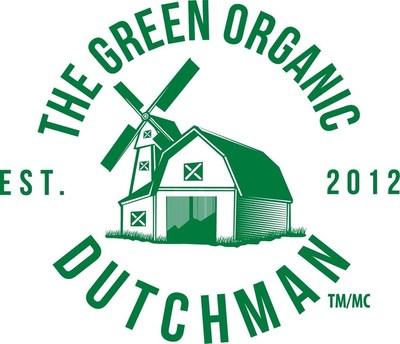Indigo Shire Council creates organic, biodynamic farm register to eliminate contamination risk
Patrick Mickan has been working the land in Beechworth for six years, growing vegetables to supply local restaurants and wholesale outlets.
Upon starting, one of the first things he did was notify Indigo Shire Council that Beechworth Natural Farm was certified organic and biodynamic, and they did not want their boundaries sprayed.
"But a couple of times, I've had to tell contractors, 'Oh, you do know this is an organic property?' and the contractors had no idea," Mr Mickan said.
"So, I think it's something that needed to be addressed with a better system."
That's precisely what Indigo Shire Council thinks.
But as there is no publicly available register of organic farms in Victoria, they have decided to create their own.
They have put a call-out to owners of certified organic and biodynamic farms in the area to share their location and contact details, so they can start a conversation about best management.
"Council manages 1,300 kilometres of roadside across the shire, so it's a big area of roadside that we manage for noxious weed control," environment and sustainability coordinator Sam Niedra said.
Mr Niedra said because there was no public database, they had previously had to rely on staff knowing where sensitive properties were.
"But, of course, staff come and go over time, and also properties can change ownership as well," he said.
"So this has been an opportunity to go out and get a snapshot of where the current certified organic farms are in the landscape, and that helps us to be more responsible land managers."
"I always wanted to farm organically, and sort of fell into biodynamics," Mr Mickan said.
Over the years, he has been working hard to add compost and soil conditioners to the land,
Mr Mickan said it was getting better every year.
"It's a very low fertility soil for vegetable production," he said.
"But it's certainly much more productive than it was six years ago. It's a totally different soil now, I'd say."
However, he said any risk of spray drifting from council activities onto the property could have a big impact.
Mr Mickan said if they were product tested and any residue was picked up, it could compromise the organic certification.
"If I couldn't sell my produce as certified, I'd probably be looking at a 50 per cent price reduction against conventional produce," he said.
"And then if there was contamination, it could mean I couldn't use that land organically for a couple of years and sell organic produce off it, so it would be a significant thing."
Mr Niedra said all of council's weed control was done by qualified contractors who had agricultural chemical user permits and always used chemicals in a safe manner.
But, he said, the council was very conscious of the potential impacts of spray drift.
"If there is a property that doesn't use synthetic herbicides, we're mindful of that," Mr Niedra said.
The certification program, he said, was an ongoing project.
"It's an interesting process we've embarked on, and it's something we'd like to keep updated," Mr Niedra said.
"So, not do it every 10 years, but … keep a current list of their locations."
Mr Mickan said the register was a "really positive" idea and has already signed his farm up.
He would like to see the register expanded to include organic and biodynamic farms that were not certified and for the council to look at cutting down chemical use around the shire in general.
We acknowledge Aboriginal and Torres Strait Islander peoples as the First Australians and Traditional Custodians of the lands where we live, learn, and work.
This service may include material from Agence France-Presse (AFP), APTN, Reuters, AAP, CNN and the BBC World Service which is copyright and cannot be reproduced.
AEST = Australian Eastern Standard Time which is 10 hours ahead of GMT (Greenwich Mean Time)



